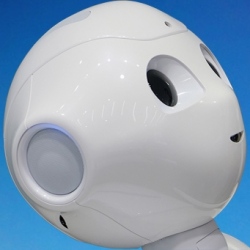
Artificial intelligence is recognised to be the future of mankind, experts say, and China is said to be in the lead in years to come, by 2030, neck and neck with the US and Russia, according to Bloomberg.
China has vowed to become a world leader in artificial intelligence by 2030 in full force, in every layer of education system.
China plans to pump up to a billion to win this arms race.
On 20 July, China had released a “national AI development plan” which committed it to spending $29.8 billion on AI research by 2020 and $79.48 billion by 2025.
The “national AI development plan” consists of a step-by-step policy outlined, with a pledge to become the world best AI leader, aiming an industrial scale yield of RMB1 trillion (about S$206 billion).
Heavy emphasis has been placed on the pivotal roles of primary and secondary education, with special programmes and high-end talents to be soon injected. Of course, more institutions and research centres and more experts are to be expected.
China’s State Council said the “situation with China on national security and international competition is complex”, which was part of the incentive for making a domestic AI push.
“China right now represents about half of the most interesting AI investment opportunities in the world,” said venture capitalist Jim Breyer at the CNBC Institutional Investor Delivering Alpha conference in New York.
Accenture Research, in collaboration with Frontier Economics, modelled the impact of AI in 33 economies that together generate more than 80 per cent of the world’s economic output.
Meanwhile, global giants like Google are also busy hunting for AI talents. Google is building an artificial intelligence team in Beijing, China, despite having its search engine and mobile app store banned in the country.
The search provider has been recruiting fiercely over the past year, and in May has implied that an AI research team based in China could be on the cards, according to the Financial Times.
China’s AI strategy also directly connects commercial AI developments to defense applications, another trait influenced by its strong central government. Baidu, China’s leading search engine, runs a national machine learning lab with the operational goal of making China more competitive as well.
The arms race is believed to acquire smart military power, as AI-related technologies such as autonomous drones and intelligence processing software are seen as tools for augmenting human soldier capital.
“The US, Russia, and China are all in agreement that artificial intelligence will be the key technology underpinning national power in the future,” Gregory C. Allen, Center for a New American Security fellow.
Russia so far has trailed China and the US at the arena, but intends to catch up.
Although the US has so far been generally recognized as the global hub for advanced AI development, that development has been almost totally focused in the private sector, and the government has lagged far behind with strategy and R&D. How much cooperation can be received from the private sector also varies with the political climate.
The AI evolution leaves no economy behind – developed countries including Japan and Singapore are catching up too.
In May, the National Research Foundation (NRF) will be investing up to S$150 million into a new national programme, AI.SG, aimed at enhancing Singapore’s artificial intelligence (AI) capabilities over the next five years. This was announced by Minister for Communications and Information Yaacob Ibrahim at the opening of InnovFest Unbound event on May 3.
Dr. Yang, an experienced computer engineer who had worked in China, US and Singapore, expressed that Singapore had lagged behind the battle because not enough resources was diverted to IT development earlier on, and he reckons that this has resulted Singapore to initiate E-payment system only a decade after China had done so. “Although biotechnology should be shed lights on, IT development seems far more lucrative now,” he said.
However, famous scientists such as Professor Stephen Hawking and Elon Musk had warned that AI can be so disastrous that it might wipe out the entire human race. Elon Musk tweeted on 4 September, “China, Russia, soon all countries w strong computer science. Competition for AI superiority at national level most likely cause of WW3 imo.”
